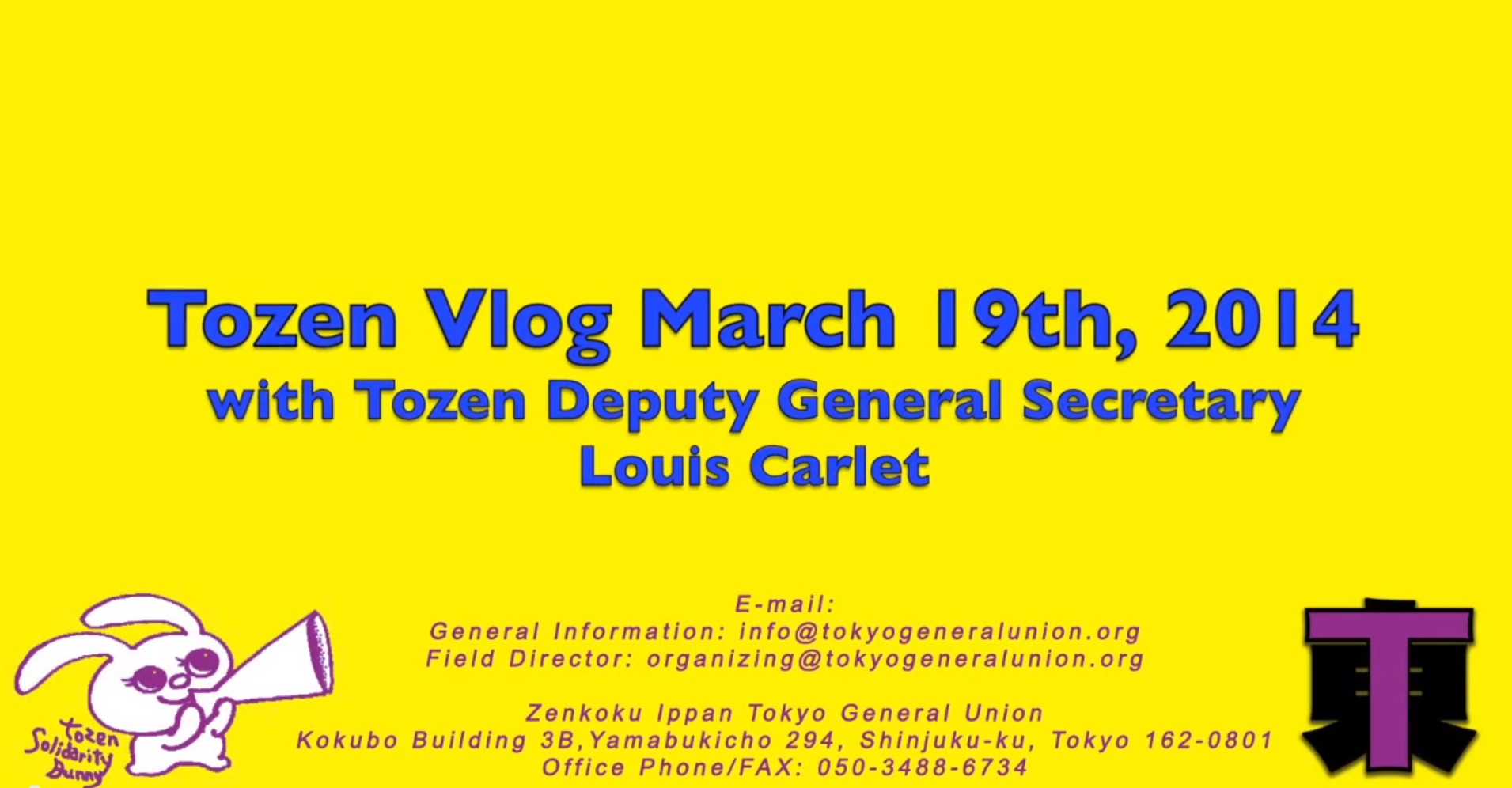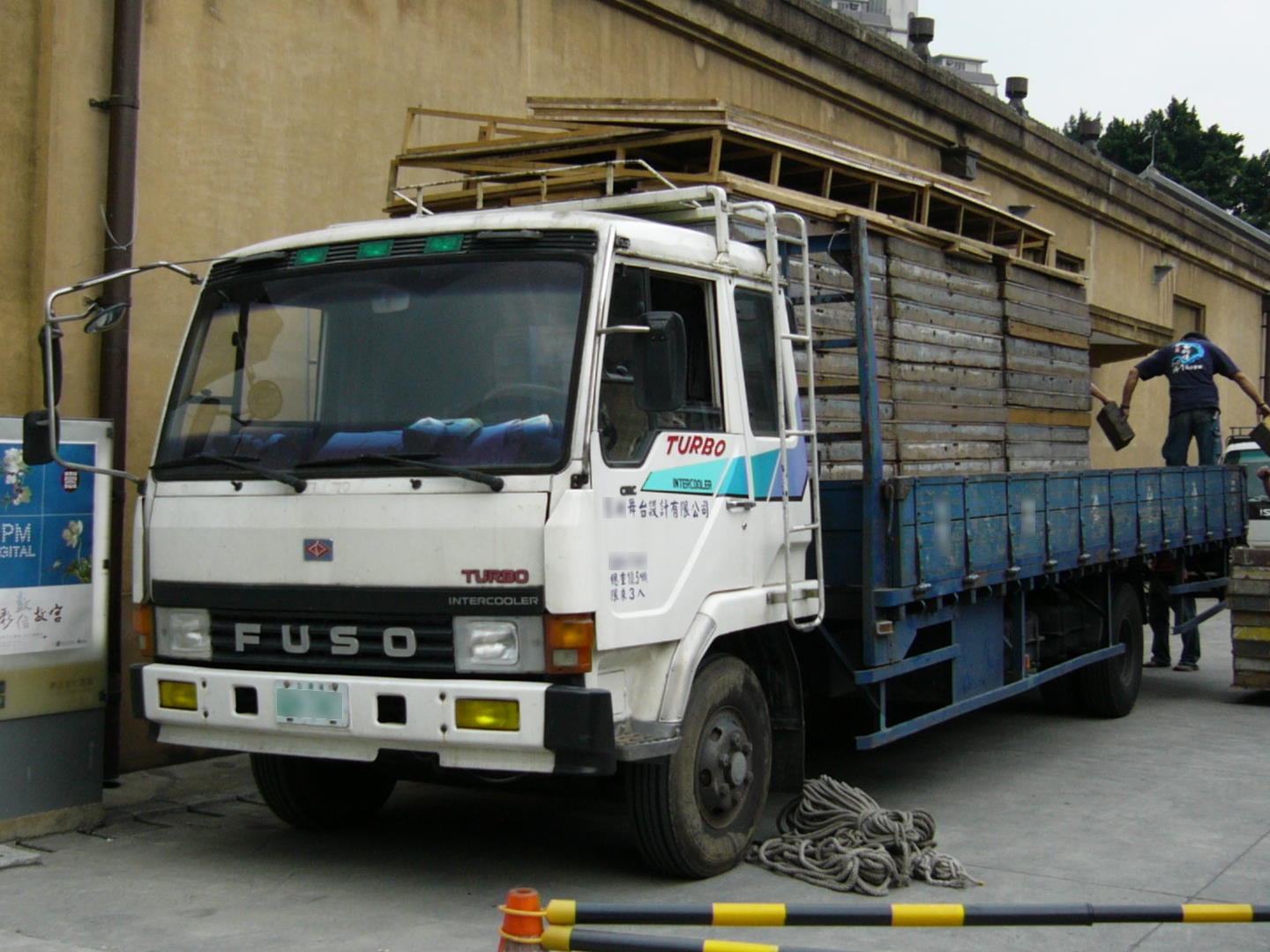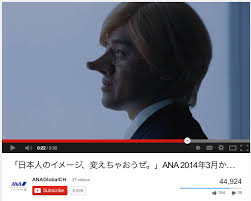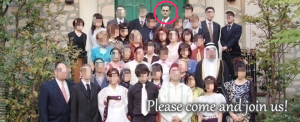law news
Holding on to resignation letters may be common but it’s neither right nor valid
New NHK President Katsuto Momii made headlines around the world with his claim that “comfort women” have been a common feature of conflicts involving “every country.” Using sex slaves in wartime, he said, was only wrong according to “today’s morality.” Causing great concern to press-freedom advocates, he also insisted that “when the government says ‘right,’ we cannot say ‘left.’ “
ANA caricature speaks volumes about Japan’s outdated mind-set
By Hifumi Okunuki
Last month, a new ANA commercial hit the airwaves — and quickly ran into some serious turbulence.
The scene is Haneda Airport. Two Japanese men dressed as pilots stand with their backs to the camera.
“Haneda has more international flights nowadays,” says one.
“Finally,” replies the other.
“Next stop, Vancouver,” the first man says.
“Next stop, Hanoi,” his friend replies.
“Exciting, isn’t it?”
“You want a hug?” the taller man says, out of nowhere. The shorter man stares at him in bewilderment.
The man who proposed hugging criticizes him, saying, “Such a Japanese reaction.”
“Because I am Japanese,” the man says in his defense.
“I see,” says his partner, before falling into a contemplative silence. “Let’s change the image of Japanese people.”
When the camera returns to the shorter man, he is wearing a blond wig and a false nose of Pinocchio proportions. “Sure,” he says.
A voiceover then intones the All Nippon Airways slogan, “From Haneda to the world, ANA,” and the commercial ends.
As soon as this ad aired, ANA was inundated with criticism. The thrust of the complaints was that the ad was racist and exaggerated the physical features of white people to point of mocking them.
ANA did not seem to have anticipated such a reaction. It swiftly apologized and removed the offending final image from the clip on TV and online. (Though it was only the TV commercial that received criticism, they also took down posters of one of the actors from the commercial wearing the traditional dress of various countries.)
What interested me in particular was the difference between the reactions of Japanese and foreigners who saw this ad. At my labor union there are members of many different nationalities, the large majority of whom expressed unhappiness or indignation toward the ad. “How did they fail to anticipate this would offend people?” many asked.
On the other hand, Japanese people I know reacted with bewilderment. “It’s certainly childish,” their comments tended to run, “but I couldn’t call it racist. On the contrary, since blond hair and big noses are something that in Japanese culture have long been held up as attractive, the ad is more an expression of Japanese people’s sense of inferiority.”
My personal opinion is that the ad is a disappointing anachronism, and a reminder of the parochial outlook of large Japanese corporations. The ad appeals to the facile formula that “foreigner = white = blonde and big-nosed = English-speaking = globalization.” But this feels bizarrely outdated and out of place coming from ANA, a major carrier trying to depict the airport generically — and Haneda in particular — as some sort of stage for exchange between the world’s many races and nationalities. Instead, the ad unintentionally shows that the Japanese archetype of thegaijin (foreigner) remains as strong as ever.
So why is it that so many of the Japanese people I spoke to couldn’t understand why foreigners would be angry about this “racist” ad? I think, fundamentally, it has to do with the very narrow image that postwar Japan has had of what “abroad” and “foreigners” mean. Because postwar Japan has been politically, socially, culturally and in almost every other respect in thrall to the West — and particularly the United States — the view that blond, big-nosed, blue-eyed and English-speaking are somehow “better” or the “global model” is widespread.
At the same time, the former targets of Japanese invasion in Asia, such as China and South Korea, have been largely ignored. Political leaders have avoided the question of responsibility for the war, and ordinary people have relatively little opportunity to study their own recent history. Japan has considered itself as separate from Asia, due to its status as the only Asian country that succeeded in developing into a major economic power. For postwar Japan, “foreign” has basically meant “American.”
As Japan’s own economic engine has puttered out, China has started to grow rapidly and South Korea has become a major hub of popular entertainment and industry, and many Japanese now feel threatened and see these countries as rivals.
The Japanese media have been eager to belittle their neighbors. And so, Japan, which up to now had adopted a “see no evil, hear no evil, speak no evil” attitude to its history of war against its neighbors, is at the stage where its politicians are actively trying to make excuses for its past aggression and are even trying to apportion blame to the Koreans and Chinese.
Japan is thus far from becoming “global” in any real sense of the word. In a nutshell, the world for Japan consists of China and Korea — the objects of resentment and controversy — and the rest, who are all blond, big-nosed English-speakers.
Japanese women’s magazines often run articles with titles like “How to do your makeup for that foreign look” or “half look,” where “foreigner” obviously means “white Westerner” and “half” means “a half-Japanese, half-white mix.” No one who reads these headlines would consider that they could be referring to half-Chinese or half-Filipino Japanese, even though we inhabit a world of around 200 different countries, most of which are majority non-Caucasian.
It’s from this perspective that the trade ministry is raising its voice and calling for Japan to prepare workers with a more “global outlook” and to stop the trend of young people “looking inward” (uchimuki).
This is laughable. It would certainly be better if young people looked out at the world, provided they recognize and appreciate its true ethnic, linguistic and cultural diversity — and that this diversity cannot and should not be ranked in terms of which traits are better or worse. That would be some real globalization.
Apologies for the long buildup, but I felt this commercial brought up an important point regarding the situation of foreign workers in Japan. But first, I would like to ask readers what they think: Do Japanese businesses discriminate against foreigners?
Japanese labor law has only one or two articles that touch on the subject of foreigners. The crucial one is Article 3 of the Labor Standards Act, which states that “an employer shall not engage in discriminatory treatment with respect to wages, working hours or other working conditions by reason of the nationality, creed or social status of any worker.”
This is called the principle of equal treatment. Nationality is considered to encompass the concept of race in this article.
It’s not necessarily a bad thing that Article 3 is the only section of the Labor Standards Act that refers to foreigners. Since every article of labor law should apply to every person working in Japan, I don’t think there’s any need to make any special mention of foreigners elsewhere.
So, if Japanese labor law protects foreigners and Japanese equally, what’s the problem? Let’s look at the Tokyo Kokusai Gakuen case (Tokyo District Court, March 15, 2001).
The defendant was a language school that employed the 16 plaintiffs in the case (of whom three were Japanese) as teachers. The case centered on claims of unpaid wages and security of contract renewals.
The foreign teachers were employed on a separate contract to the Japanese teachers (the contract was called the “Foreigner Contract”). The difference between the two contracts was that the one the Japanese instructors were on was permanent, whereas the foreigners were on fixed-term contracts. The plaintiffs alleged that this difference violated the aforementioned equal-treatment principle.
On this point, the court ruled against the teachers, finding that “the difference in contracts did not violate Article 3 of the Labor Standards Act” — the reason being, the court said, that “foreign teachers were employed as temporary, semi-regular staff and were given higher pay to compensate for the difference. The school did not discriminate in any other way.”
In other words, the court found that since the foreigners had no corresponding complaint about being paid more than Japanese in the same work, then it was not discriminatory for foreigners to be denied permanent employment.
This finding brings to mind the attitude that my Japanese friends had with regards to the ANA commercial: Sure, foreigners get a ribbing, but the racial traits exaggerated in the ad are desirable to us, so it can’t be racist. In a similar vein, according to the Tokyo District Court ruling, foreigners are on fixed-term contracts but they get paid more, so it can’t be discrimination.
I cannot agree with the court’s reasoning. High pay doesn’t make limiting foreigners’ term of employment fair. Isn’t it in principle discriminatory that Japanese are automatically put on lower-wage permanent contracts, and foreigners are automatically put on higher-wage limited-term contracts, completely disregarding the wishes of any of the individuals concerned?
Why is it that just because you are a foreigner, permanent employment is automatically off the table? And why does higher pay justify limited-term contracts? No rational reason comes to mind.
I think the principle of equal treatment established in Article 3 of the Labor Standards Act is a wonderful thing. The reality, however, is that constant violations of the principle persist in Japanese workplaces to this day.
It is important, now more than ever, for working people to fight for all workers’ rights to equality and security at the workplace. This is not something employers should be able to use to divide their employees. Instead of pandering to the grotesque caricature of globalization in ANA’s ad, employees would be better off heeding the global call of “Workers of the world, unite!”
Hifumi Okunuki teaches at Sagami Women’s University and serves as executive president of Tozen Union (Zenkoku Ippan Tokyo General Union). She can be reached at tozen.okunuki@gmail.com. On the second Thursday of each month, Hifumi looks at cases in Japan’s legal history to illustrate important principles in labor law.
Restore the shuttered-up New Year’s of yore
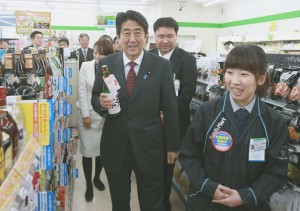
BY HIFUMI OKUNUKI
First of all, I would like to wish a happy new year to all the readers of Labor Pains. While labor news has generally been a gloomy topic of late, it is my hope that this year will bring brighter things for me to write about.
As I draft this first column of 2014, I am sitting in front of my computer at 10 at night in my apartment in downtown Tokyo. The suddenly vacated metropolis is blanketed in an uncanny hush. Hardly any cars can be seen passing by. In the great New Year’s exodus, many of the inhabitants of Tokyo have returned to their various hometowns across Japan, leaving the city in a temporary state of near-abandonment.
I can’t say that I’ve ever disliked this vacated Tokyo. In fact, I enjoy the calm atmosphere. Watching “Kohaku” (an annual pop music contest televised on New Year’s Eve), chatting about this and that, eatingtoshikoshi soba (a noodle dish with tempura served on Dec. 31) — this kind of traditional New Year’s Eve suits me just fine. And, even if I were to absentmindedly forget the tempura for the soba, I wouldn’t have to worry because, in this day and age, most supermarkets remain open all through the holiday season. It is no longer rare to see a supermarket open its doors even on New Year’s Day.
It wasn’t always like this. Back in my day, we took it for granted that for the period from the evening of Dec. 31 to Jan. 3, nearly everything would be shuttered up. On the morning of New Year’s Eve, stores would be scenes of chaos, packed with shoppers frantically stocking up on supplies to last the week. My mother used to take my sister and me along as well, to help carry bags for her, and both of us would barely be able to hold all the shopping. For us kids, the pressure of knowing that if we forgot something we would have to do without it over the holidays brought with it a strange sense of excitement.
But today’s young people have probably never experienced all that. Convenience stores that open 365 days a year, 24 hours a day now dot the Japanese landscape, and supermarkets are closely following with ever longer business hours, to the point that the end of the year no longer feels like such a special time.
I sometimes wonder if this new “convenience culture” is a good thing. Of course, from the standpoint of consumers, being able to buy anything you need any time provides a sense of security, and this convenience could be considered to be something positive. But at the same time, if we look at it from the workers’ perspective, that convenience comes at the direct cost of more labor through the holiday period. Convenience stores, supermarkets, DVD rental shops, family and fast food restaurants,izakaya, karaoke parlors — all kinds of establishments remain garishly and noisily open for business in spite of the New Year’s holiday.
The people working at these places have to sacrifice their private lives for the sake of their jobs. Of course, you could argue that the people working at these stores freely choose to do so. However, I doubt that most of the people working in these jobs are in a position to make very “free” choices. Rather, I suspect that they are cajoled or even coerced into taking these shifts. I can’t help but have misgivings about the idea of forcing people into situations where they have to make personal sacrifices for the sake of customer convenience.
For contrast, let’s look at how the same issue is handled in another country. In Germany in 1900, a law called the Shop Closing Act (Ladenschlussgesetz) was passed that remains in force to this day. Under this law, shops are in principle not allowed to open outside the hours of 6 a.m.-8 p.m. on Mondays to Saturdays — or at all on Sundays and national holidays. While airports and train stations are exempt and many other revisions have followed over the years, gradually resulting in the law being relaxed significantly, the Shop Closing Law continues to regulate business hours in Germany.
The motivations behind this act were threefold. First, for religious reasons, the government wanted to preserve Sunday as the Christian Sabbath. Second, the law’s proponents hoped to protect the livelihoods of “all workers.” They feared that longer business hours would result in employees being forced to work longer hours to match. Third, the government wanted to protect small businesses. In other words, it worried that with unregulated business hours, large companies that could afford to extend business hours would gradually rob smaller companies of their customers and thereby threaten their very existence.
As I’ve written about over and over in my Labor Pains articles, overwork is one of the most serious social ills afflicting Japan today. About 5 million people — 10 percent of Japan’s workforce — toil more than 60 hours a week, according to a 2012 study by the Ministry of Internal Affairs and Communications.
Theoretically, Article 32 of the Labor Standards Law gives workers the protection of the eight-hour day and the 40-hour week, and bans work above those limits. However, exceptions to this law are often recognized. While so-called 36 Agreements (a kind of deal struck between workers and management about overtime, named after Article 36 of the same law) are required for overtime to be permitted, in practice many companies are able to extract unpaid overtime from their workers without concluding any such deal.
On top of that, in an investigation published on Dec. 30, the Tokyo Shimbun found 1,343 cases of companies that incorporated “fixed overtime pay” lump sums into regular wages and then forced workers to work past the hours originally set in their contracts or, alternatively, did not even give a clear figure on how much overtime was being paid for.
Furthermore, under the Labor Standards Act, provisions exist allowing for flexible arrangements such as irregular working hours, flex-time, work outside the workplace and discretionary labor. (Under the discretionary labor system, employer and employee are supposed to decide between them how long a job should take, with the employer then paying the worker for those hours regardless of how many hours are actually worked.) In other words, the law that is supposed to protect the health and livelihood of workers in Japan is riddled with loopholes, and the country is sadly filled with employers willing to exploit these loopholes and overwork their employees.
So once again this year, I have ended up returning to a gloomy theme. However, this New Year’s Day, I dare to dream of how different things might be if we were to look at the people working at our convenience stores, supermarkets and restaurants not from the perspective of consumers blindly seeking convenience, but, like the framers of Germany’s Shop Closing Act, as people who believe that all workers should be protected.
In that spirit, and not out of nostalgia, I suggest that we work to bring back the old, shuttered-up New Year’s Day.
Hifumi Okunuki teaches at Sagami Women’s University and serves as executive president of Tozen Union (Zenkoku Ippan Tokyo General Union). She can be reached at tozen.okunuki@gmail.com. On the second Thursday of each month, Hifumi looks at cases in Japan’s legal history to illustrate important principles in labor law.
Originally published here:
http://www.japantimes.co.jp/community/2014/01/08/general/restore-the-shuttered-up-new-years-of-yore/#.UtdzeHnCWwe
The year in labor: the Top 5 pains of 2013
By Hifumi Okunuki
Illustrations by Time O’Bree
Japan’s old calendar called December shiwasu (師走). These two kanji mean “teacher” and “run.” The idea was that the last month of the year is so busy that even a staid, starch-shirted professor finds him or herself scurrying around like a rabbit, trying to get everything done on time.
As we hurtle toward 2014, it’s time to look back on how the Year of the Snake treated labor. In keeping with the growing trend on TV, blogs and news sites, I’ve devoted this final edition of the year to a Top 5 list. The Top 5 Labor Pains of 2013 will focus on what really shook things up in terms of labor relations and employment law. In keeping with convention, I’ll count backwards.
Note: These are my personal picks and you may question my choices or believe other labor news to be more deserving of inclusion. If so, please don’t hesitate to let me know.
5. The planned ‘special dismissal zone’

The media jumped on the plan, calling the proposed area a “dismissal zone,” to which academic Tatsuo Hatta, the head of the working group, retorted, “It’s a job creation zone, not a dismissal zone.”
What kind of jobs do these planners intend to create for us? Since firms are free to employ and un-employ workers at will, these workers will in effect become interchangeable parts in the corporate machine. For every job created, employers can cherry-pick which workers to let go, leading to massive turnover and great social instability.
The plan raised such an uproar that it has been put off for now. But proponents will not roll over so easily. When the winds are right, they are sure to give it another shot.
4. Rin Danda, labor standards inspector

I cannot overemphasize the significance of the fact that a labor standards inspector was made the protagonist of a TV series.
I had already read the comic book “Dandarin,” which follows the adventures of plucky Rin Danda, and was concerned that something might be lost in translation en route to TV. I have been reassured by the first series, which ended Wednesday. It is obvious that producers have researched the Labor Standards Bureau properly and have carefully avoided making the script preachy.
Ratings have been poor, but the series has gone a long way toward conveying the reality facing the modern worker in Japan.
3. The Fukushima far-more-than-50

Do you remember the “Fukushima 50″? They were the workers who struggled frantically to regain control over the Fukushima No. 1 nuclear power plant just after the triple meltdown caused by the March 11, 2011, Great East Japan Earthquake and ensuing tsunami. The domestic and foreign media heaped accolades upon them, suggesting they were heroes burning with a sense of mission who demonstrated remarkable courage in fulfilling their duties with scant regard for their own lives.
More than 2½ years have passed, yet the government and society have nearly forgotten those who still toil day and night at the plant. If they were to drop their tools for even a night, the resulting contamination could leave our country uninhabitable. And it isn’t just 50 of them anymore — let’s recognize the thousands of heroes who have worked, still work and will work at the Fukushima No. 1 plant to contain the contamination and protect our environment.
And what are working conditions like for these heroes? Unfortunately, many workers there are slaving under horrible sweatshop conditions. Tokyo Electric Power Co. hires layer upon layer of subcontractors, sub-subcontractors and so on, with most workers involved in the cleanup eking out a living on the very lowest tiers of this exploitation pyramid.
The biggest problem with this structure is that no one can figure out who is accountable for employment and working conditions. With little or no preparation or training, these workers are suddenly thrust into highly dangerous tasks beyond the reach of labor law but well within the reach of harmful daily doses of ionizing radiation. Even their “danger pay” is skimmed by their bosses and their bosses’ bosses.
Most workers grin and bear it without a peep of protest, fearful of losing the only job they can find. Recently, however, one worker employed by a fifth-tier subcontractor took action. He was told upon hiring that he would not have to work in dangerous conditions, yet he was assigned to increasingly high-exposure tasks, such as removing glass near one of the reactor buildings. The day after he protested that he had been promised a safe job, he was fired.
He joined a labor union, which requested collective bargaining with five companies, including Tepco itself, over demands such as reinstatement, an end to false outsourcing (gisō ukeoi) and the payment of the promised danger money. Only his direct employer — the fifth-tier subcontractor — agreed to negotiate. His union sued Tepco and the other defiant firms in the Tokyo Labor Commission for refusing to engage in collective bargaining. Tepco claimed to know nothing of the request for collective bargaining and refused to comment.
Going on three years since the accident, we still have little to show in terms of protecting the rights of nuclear power plant workers.
2. ‘Black company’ makes it into Top 10 buzzwords

The winning “Buzzwords of the Year” for 2013 in the annual contest held by publishing house Jiyukokuminsha and correspondence education provider U-Can were “Ima desho!” (Why not now!), omotenashi (hospitality),jejeje (an expression of surprise) andbaikaeshi (double payback). I won’t go into the above expressions here, but I will discuss burakku kigyō, which made the Top 10.
Literally, the term means “black company,” but it might more properly be rendered as “evil corporation.” The phrase describes firms who find profit and success by scoffing at labor laws and brutally exploiting employees, particularly young workers who do not know the law. Some companies literally work their employees to death. Or suicide.
The word went viral thanks to the efforts of Haruki Konno, the director of the labor consultancy NPO Hojin Posse.
Some have pointed out that using a term derived from the English word “black” to mean “evil” is racist toward those of African descent. There are many words in Japanese that seem to associate “black” with negative things:kuroboshi (defeat), haraguroi hito (mean person) and kuro (guilty), to name but a few. There are also exceptions: kurooto (professional) andkuroji (profitable), for example.
For better or worse, burakku kigyō has seeped deep into the language this year and has raised awareness of the existence of some very bad companies. While this is certainly a social problem, it’s also true that it’s up to workers to stand up for themselves and join forces with their colleagues to improve their conditions.
1. Clock starts on the ‘five-year rule’

I had difficulty deciding which Labor Pain to pick for the No. 1 spot this year. In the end, I decided that the “five-year rule” may end up having the greatest impact on workers — for good or ill, it remains unclear. For my part, I cannot help being pessimistic about this change to the Labor Contract Law.
About 26 percent of workers in Japan are on fixed-term contracts. The risk of nonrenewal hangs over their heads each time their contract concludes. It is much easier to fire such workers than those with ordinary permanent contracts. Many companies hire workers on these temporary contracts even though the work is anything but. This “permatemp” status continues year after year and renewal after renewal.
The purported objective of the new rule is to increase job security for the millions on such contracts by letting them attain permanent status after five years. Many employers, however, have decided to go 180 degrees against the spirit of the law and are already planning to let workers go before they reach the five-year milestone, thus making their jobs even less secure.
A small minority of employers are bucking this trend and moving actively to let their workers attain permanent employment status. But even this year — the first year of the five-year “clock” — we see want-ads flooding job sites advertising positions with five-year ceilings.
More frightening still, while employers seem to know enough about the law to evade it, a September study by Japan’s largest union federation, Rengo, indicated that 88 percent of workers on fixed-term contracts were unaware of the nature of the change to the Labor Contract Law. That has to change. We need to know the law in order to use it.
I want to thank all my readers for taking the time to read this year’s 12 Labor Pains. Next year, I plan to take the column in an all-new, more fun direction. Have a good New Year’s and see you in the Year of the Horse.
Hifumi Okunuki teaches at Sagami Women’s University and serves as executive president of Tozen Union (Zenkoku Ippan Tokyo General Union). She can be reached at tozen.okunuki@gmail.com. On the second Thursday of each month, Hifumi looks at cases in Japan’s legal history to illustrate important principles in labor law. Send your comments and story ideas to community@japantimes.co.jp.
http://www.japantimes.co.jp/community/2013/12/11/general/the-year-in-labor-the-top-5-pains-of-2013/
Real ‘labor cops’ also deserve to get the star treatment
By Hifumi Okunuki
In the show, Yuko Takeuchi plays a stubborn, by-the-book labor standards inspector named Rin Danda who loathes letting even the slightest infraction slide, making for some awkward, tense moments when she comes up against her more see-no-evil, hear-no-evil coworkers. Perhaps not surprisingly, never before has a TV show starred a labor standards inspector; before this series went on air, most people probably had no idea what they do.
Takeuchi told a magazine, “I never even knew the job of labor standards inspector existed until I got this role.” It’s not that the actress knows less than the average citizen; it’s that the job was nearly invisible and played no role in the quotidian lives of most people.
That said, recent high-profile cases of restructuring layoffs, unfair dismissals, long work hours, karōshi (death from overwork), karō jisatsu (overwork-induced suicides), incidents of sexual and power harassment, workplace bullying and other sometimes-life-or-death issues (the list goes on and on) suggest it was high time to shine a light on this invaluable profession. TV has regained meaning in my life — and, I hope, in the lives of others.
Tackling such a serious, inherently boring topic and attempting to turn it into a bundle of laughs for TV must have been quite a challenge — and a risk — for the producers. They have done all that and more. The show says a great deal about Japanese office politics and corporate practices that are long overdue some serious scrutiny.
Today some 52 million workers toil at about 4.3 million workplaces in Japan. First and foremost, labor standards inspectors are responsible for all these workers’ lives, safety and health. On top of that, they are supposed to ensure that working conditions comply with all relevant labor laws and regulations. They must pass a civil servants’ exam before being placed at one of the many labor standards inspection offices dotted around the country.
Inspectors have the right to regularly conduct compulsory spot raids on companies to investigate their records. They also have judicial police powers to seize assets to cover unpaid wages and even to arrest violators. They are often called “labor cops,” which would seem to be a pretty fair description.
With all these powers at the disposal of labor inspectors, you could be forgiven for imagining Japan must be a workers’ paradise where employee protections are universally respected. The sad fact, however, is that Japan is awash with rogue bosses who think of nothing but their bottom lines and how they can squeeze every last ounce of production from their workers. Ironically, the extraordinary enforcement powers inspectors have are precisely what makes them hesitant to act.
There is even a jargon term for useless inspectors who make their rounds to each company, take a quick glance around the workplace and leave: kyoro-kan. The word kyoro means to glance around, while kan means inspector. I wouldn’t dream of suggesting that all inspectors are kyoro-kan, but I have encountered several unmotivated inspectors in the past who did their best to discourage, dishearten and dissuade workers who had mustered the courage to blow the whistle on their bosses.
However, the biggest problem is systemic rather than personal. First, there are far too few inspectors. Tokyo Shimbun’s evening edition on Nov. 11, 2012, ran the headline “Tokyo’s 23 wards have one inspector for every 3,000 workplaces.” Such a ratio precludes thorough enforcement. Yet the government is pushing for further cuts and reduced hiring. Even the passionate few inspectors must feel powerless when faced with such daunting numbers. To do their job properly, they would have to — no irony intended — work themselves to death.
Here, I’d like to introduce an ongoing court case brought on Feb. 22, 2011, by the family of a 24-year-old man who killed himself due to working excessive overtime. He joined construction company Shinko Plantech in 2007 and supervised repair construction.
Working more than 40 hours a week of overtime violates the Labor Standards Law unless management has signed an Article 36 agreement (saburoku kyōtei) with a union or employee representing a majority of the workforce. Employers must register such agreements with their local labor standards inspection office (rōdō kijun kantokusho).
Guidelines limit overtime hours to 45 per month with exceptions, including construction. Shinko Plantech signed a saburoku kyōtei with the union for 200 extra hours per month. The worker could not handle the stress and killed himself a few months after hitting 218 hours of overtime work per month.
The family didn’t just sue the company; they also sued the labor standards inspection office for accepting such an outrageous saburoku kyōtei agreement — and even the labor union for signing it. It is the first lawsuit against a labor union for a karō jisatsu. The plaintiffs are asking for ¥130 million in damages, and the district court verdict is expected any day now.
In terms of overtime hours, the Ministry of Health, Labor and Welfare has drawn a line beyond which they believe workers face a high danger of death from overwork. That line is 80 hours for two to six months straight, or 100 hours for even one month. Shinko Plantech blew that number out of the water with their deal capping overtime at 200 hours per month — and they didn’t even comply with that number. The labor union then signed this deal — a pact that would make even yellow unions blush.
So what’s to be done? I think we need to get back to basics. We must never allow workers to work themselves into an early grave. Period. Let’s learn from Rin Danda, who unflinchingly and unapologetically squares off against scofflaw employers in the name of her prime directive: protecting workers. Even when her coworkers make fun of her dedication, she retorts, “I’m just doing my job.”
Yes, indeed, the job of a labor standards inspector is to protect the lives of workers. With that in mind, the central government must hire more inspectors so that they can take heart from the example of Rin Danda and pride in protecting Japan’s 52 million workers.
See Philip Brasor’s Oct. 20 Media Mix column, “Imagining civil servants who actually serve,” for more on “Dandarin.”
Hifumi Okunuki teaches at Sagami Women’s University and serves as the executive president of Tozen Union (Zenkoku Ippan Tokyo General Union). She can be reached attozen.okunuki@gmail.com. On the second Thursday of the month, Hifumi looks at cases in Japan’s legal history to illustrate important principles in labor law. Send your comments and story ideas to community@japantimes.co.jp.

